Culture
Coronavirus frustrates Saudi women’s push for financial independence

Al ULA, Saudi Arabia (Reuters) – Abeer al-Howayan despaired of ever working after spending eight years trying to find a job that would put her chemistry degree to use in the Saudi Arabian town of Al Ula.
She eventually abandoned her scientific ambitions and turned to selling homemade cakes, before she was chosen last year for a government training programme to support a $20 billion flagship tourism project in the kingdom’s northwestern region.
The 31-year-old learned how to make artisanal soap from French experts flown in by Saudi authorities, and in late December started selling her creations at a booth near the rock-hewn tombs of Madain Saleh, site of an ancient civilisation.
She also started offering her wares online.
Then the coronavirus struck. Even after all her compromises, Howayan’s future is uncertain once again.
The pandemic has hammered Saudi Arabia’s nascent non-religious tourism industry – among the few new sectors to have emerged under Crown Prince Mohammed bin Salman’s drive to diversify the economy from oil and create millions of jobs.
“It is very tough, but I keep telling myself things will get better after corona. One has to remain optimistic,” Howayan, whose online business has also slowed, told Reuters.
Women in the United States and Europe have taken an outsized hit from the wave of unemployment caused by the coronavirus, but for women in Saudi Arabia the downturn is particularly damaging because it struck just as their efforts to enter the workforce and gain greater financial independence were gaining traction.
Howayan is among nearly one million unemployed Saudis – 12% of the working-age population – pinning their hopes on the prince’s vision to modernise the conservative and patriarchal country with ambitious projects.
Women make up about 83% of the jobless, according to the Saudi statistics office. And it’s an educated group; 70% of those women have high school diplomas or university degrees.
And many were counting on the new sectors such as tourism to provide their entry to the workforce.
Private sector squeezed
Tackling unemployment is a main pillar of Prince Mohammed’s plan. He promised in 2017 “better unemployment numbers by 2020” and to cut the jobless rate to 7% over the next decade.
But the rate has fallen by less than 1 percentage point.
A tough task has become even tougher as coronavirus disruptions and austerity measures have squeezed the finances of the private sector.
“To reduce unemployment, the private sector will need to create at least 500,000 to 1 million jobs for Saudis, said John Sfakianakis, a Gulf expert at the University of Cambridge, “But this year alone, the private sector will unavoidably contract by 7% … and that’s just this year.”
Finance Minister Mohammed al-Jadaan told Reuters that the government remained committed to job creation targets and was still funding training and capacity building.
“Coronavirus is with us this year and possibly for a part of next year, but then it will go away and when it goes away we need to make sure that we have seized this time to build more capacity and train more people to be ready when we start offering services again,” said Jadaan. He did not specifically address the issue of women.
According to regional experts, a faltering of the reform drive could lead to the public questioning the social contract between the ruling Al Saud family and the people in a country where 80% of the population is under 30.
Oil wealth is shared across the kingdom in exchange for popular submission to absolute monarchical rule. However there could be some social discontent if jobs do not materialise and Saudis find themselves paying more taxes with less state benefits, according to Yasmine Farouk at the Carnegie Middle East Center.
“It will eventually guide the country into a political discussion that the leadership doesn’t want,” she said.
Ending gender segregation
Saudi Arabia has largely struggled to lure foreign capital outside the energy sector as many investors hesitate over Riyadh’s human rights record and the commercial viability of some domestic mega projects.
But the entertainment and tourism industries started taking off last year, accompanied by social reforms to open up the kingdom, including ending gender segregation in most public places and introducing public entertainment. Thousands of jobs were created and Saudis flocked to concerts, festivals and sporting events.
Last year, the kingdom attracted international acts from Cirque du Soleil to Mariah Carey, Italian tenor Andrea Bocelli and Greek musician Yanni. Saudis also cheered female WWE wrestlers in Riyadh, and heavyweight boxers Anthony Joshua and Andy Ruiz Jr in a custom-built 15,000 person stadium.
However the Saudi tourism minister told Reuters in April that the industry, including Muslim pilgrimages, could decline by 35-45% this year due to coronavirus measures.
Abeer Mohammed Jumuah is another example of a woman who benefited from the prince’s reform drive. She spent years looking for a job as a teacher after graduating from university in home economics, and eventually joined a government training programme last year to learn cooking skills in Paris.
The 31-year-old has returned to a catering role in Saudi Arabia helping Michelin-starred chefs, but it is only temporary and she will eventually need to find new work – something that has become a trickier proposition in the wake of the pandemic.
“I hope that one day I can open a café where I can offer a breakfast menu with lots of French pastries,” she said. “I want to be financially independent and I want my two daughters, aged four and seven, to have a better living standard.”
Changing expectations
Analysts said they expected a recovery in tourism and entertainment to start in the first half of 2021, with the sectors requiring government support for at least a few years.
The Royal Commission for Al Ula, set up in 2017 to carry out reforms in the crown prince’s drive, said it planned to reopen in October this year, and a spokesman said it was committed to job creation.
Some are hopeful for the future.
Madiha al-Anazy, 29, joined a five-month tour guide training programme when she returned from Florida in May 2019 with a masters degree in biotechnology, and now has a permanent job as a tour guide.
Her 33-year-old husband, Mohamad, was temporarily taken on as a part-time “ranger” to protect heritage sites and the couple is betting on a revival in the tourism sector.
“We hope he will find a permanent job one day,” Anazy said.
Private-sector job creation is partly intended to wean citizens off reliance on the state as more than two-thirds of the Saudi workforce is employed by the government and their salaries account for roughly half of 2020 budget spending.
Low oil prices would make it difficult for past state largesse to continue. This could lead to many young Saudis taking lower-income jobs typically relegated to foreigners, in a societal shift, according to Karen Young, a Gulf analyst at the American Enterprise Institute in Washington.
“People’s expectation for income and lifestyle are going to be different to their parents,” she said.
Reporting and photo: Reuters
Culture
SO/ Maldives illuminates Diwali with culinary delights, festive spirits, chic island vibes
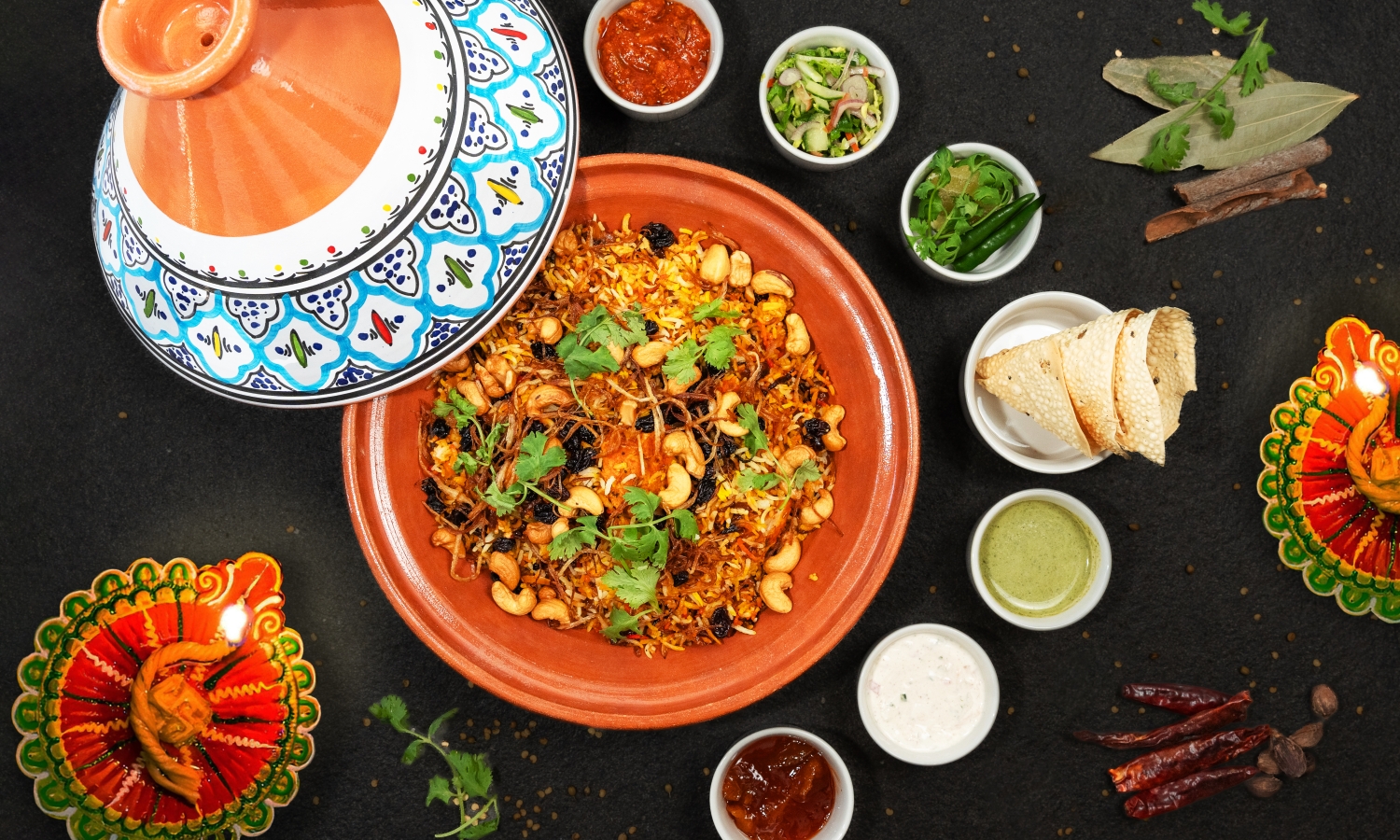
This Diwali, SO/ Maldives is set to dazzle with a bold celebration that blends cultural tradition with the resort’s signature flair. Guests are invited to indulge in a day of flavor, music, and style, wrapped in the spirit of light and festivity.
The day begins at The Citronelle Club, where guests can immerse themselves in India’s sweetest traditions with a complimentary Gulab Jamun cooking class. This hands-on session not only celebrates the art of crafting one of India’s most iconic desserts but also offers guests a memorable experience of cooking and tasting together in true festive spirit.
Following the workshop, the culinary journey continues with an exclusive tasting of SO/ Maldives’ brand-new Indian à la carte menu. Bursting with bold flavors and modern interpretations, this exciting menu brings a fresh twist to traditional favorites, showcasing dishes designed to delight both seasoned gourmands and those discovering Indian cuisine for the first time.
As the afternoon rolls into evening, the celebrations flow seamlessly to Lazuli Beach Club and The Citronelle Club, where guests can savor the moment with 40% off select premium beverage bottles. Whether shared over a meal or enjoyed as a toast to togetherness, these indulgent pours elevate the festive mood with sophistication.
The evening comes alive with a vibrant lineup of cultural and family-friendly activities. Guests can express their creativity at a Family Diya Workshop, lighting up the night with personalized clay lamps that symbolize joy and prosperity. At Lazuli Beach Club, a Henna Workshop invites guests to adorn their hands with intricate patterns, while the beachfront transforms into a canvas for a Rangoli experience, where colorful designs bloom in the sand to celebrate the artistry and spirit of Diwali.
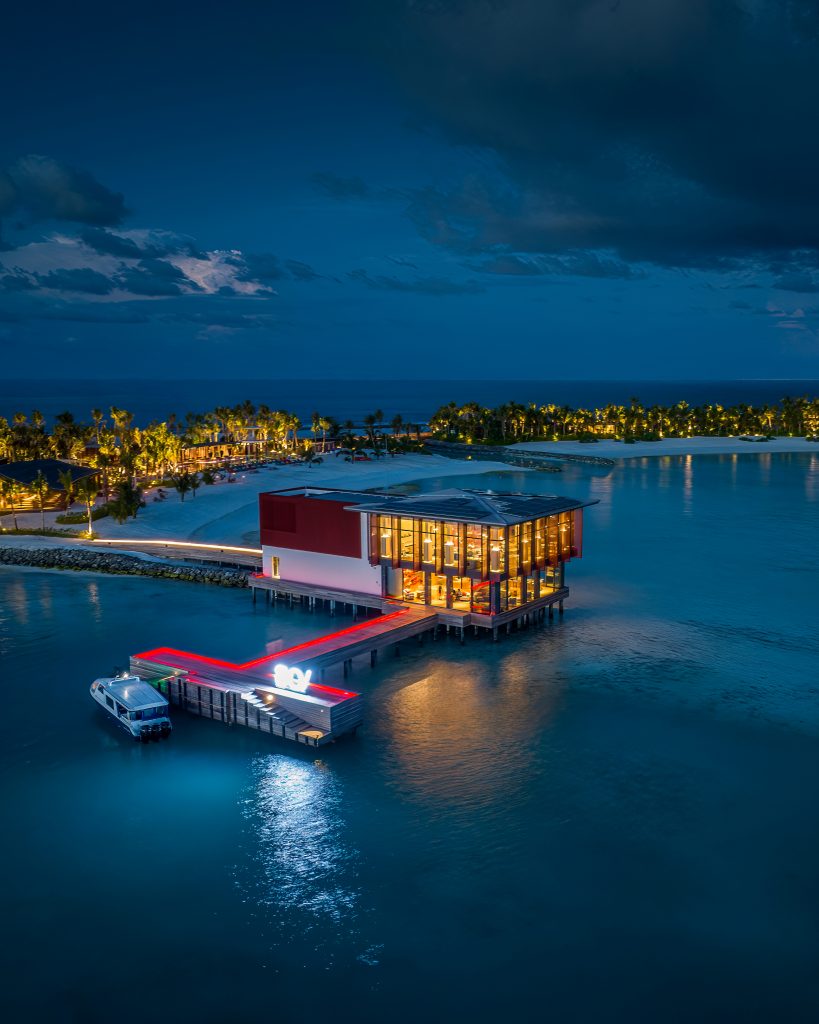
No Diwali celebration is complete without a golden-hour glow. At Lazuli Beach, the festivities shine brighter with 50% off saffron martinis during sunset, accompanied by live DJ beats. As the Maldivian sky turns to hues of orange and gold, guests can sip, sway, and soak in an electric yet elegant atmosphere, perfectly in tune with the spirit of Diwali.
“At SO/ Maldives, we reimagine cultural celebrations with a bold, chic island twist. This Diwali, we’ve curated a day that’s all about indulgence, flavors, music, and unforgettable moments,” said Olivier MOIES-DELVAL, General Manager, SO/ Maldives. “It’s about honoring tradition while celebrating in style, surrounded by the natural beauty and energy of the Maldives.”
SO/ Maldives invites guests to light up their Diwali with this one-of-a-kind experience that blends the richness of Indian traditions with the resort’s signature playful luxury.
Celebrate light, flavor, and island chic this Diwali at SO/ Maldives.
Cooking
Malaa – The Maldivian Café: NH Kuda Rah’s new culinary jewel
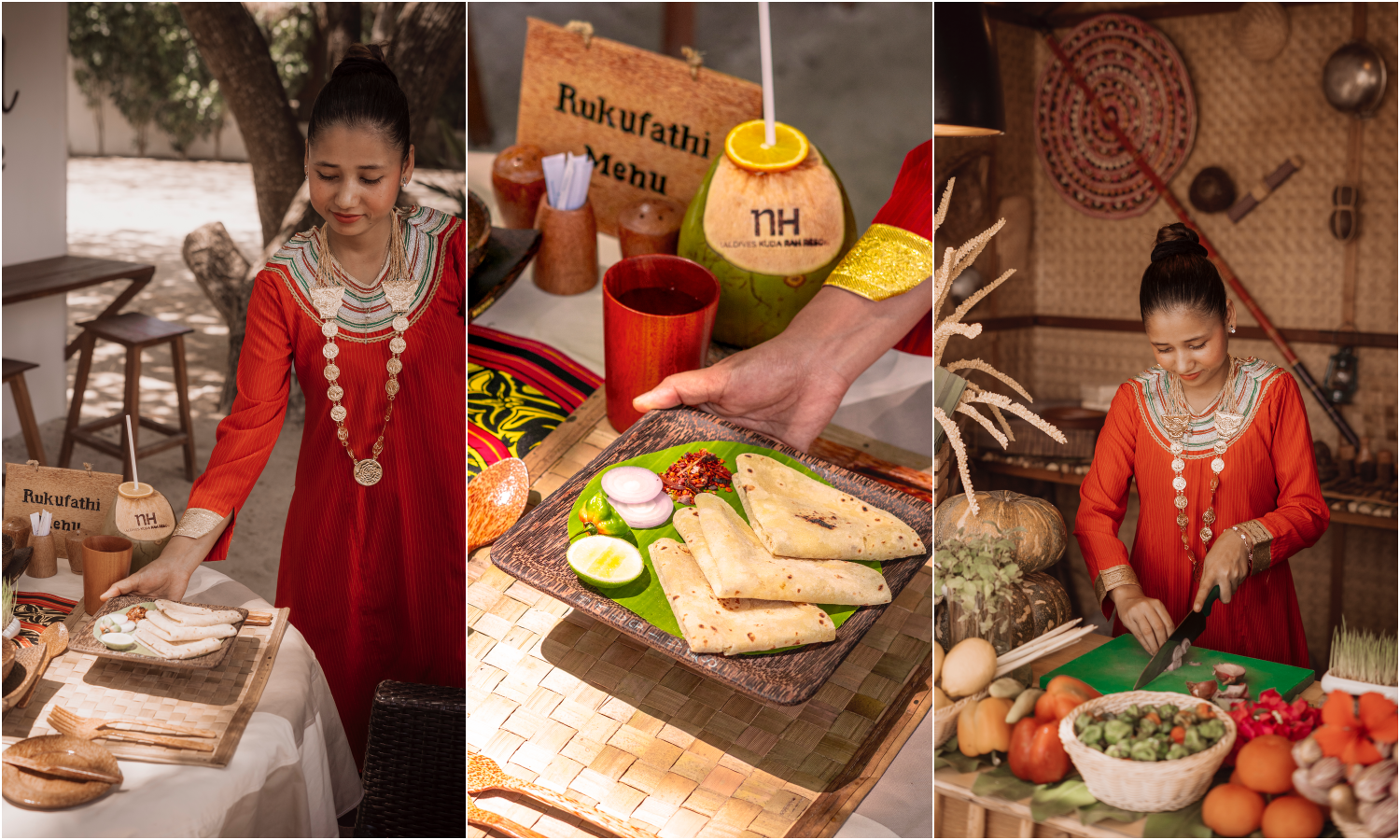
NH Maldives Kuda Rah has announced the launch of its newest food and beverage outlet, Malaa – The Maldivian Café. Now open to guests, the café offers a taste of authentic Maldivian cuisine alongside interactive Maldivian cooking classes.
Guests staying at NH Maldives Kuda Rah can delve into the country’s rich culinary traditions with guidance from award-winning Executive Chef Farish Mukhthar. With over 22 years of experience in the hospitality and culinary industries across five-star and ultra-luxury resorts in the Maldives, Chef Farish brings a deep-rooted passion and refined expertise to the resort. Trained under renowned European celebrity chefs, he has earned a strong reputation for his culinary artistry.
The café focuses exclusively on authentic Maldivian dishes, using locally sourced ingredients from nearby islands as well as the chef’s own garden within the resort. Cooking classes offer guests the opportunity to prepare classic Maldivian dishes, such as curry and local salads, under the guidance of Chef Farish—culminating in a delicious homemade lunch.
As fish (both fresh and smoked) is the staple of the Maldivian diet, it is often prepared with coconut and rice or roshi (Maldivian flatbread). Other traditional ingredients include breadfruit and sweet potato—versatile and starchy staples that feature in a wide range of local dishes. The cuisine is often boldly spiced, with the fiery Scotch bonnet chilli, locally known as githeyo mirus, playing a central role. This essential chilli, along with herbs grown organically in the resort’s garden, imparts a distinctive heat and fruity flavour to many Maldivian dishes.
While many resorts in the Maldives offer a wide array of international cuisine—ranging from Italian and Japanese to French and Indian—the opportunity to savour authentic local flavours can be one of the most memorable aspects of travel. Malaa – The Maldivian Café provides a unique and immersive dining experience for those curious about Maldivian culinary heritage and the fascinating stories behind its traditional ingredients.
This initiative is part of NH Hotels & Resorts’ broader effort to connect guests with meaningful local experiences through its Live Local programme, under the Minor DISCOVERY loyalty scheme. The programme is designed to offer curated, immersive activities and authentic cultural encounters, allowing guests to engage more deeply with their destination.
Culture
Milaidhoo Maldives invites guests to discover real island living in Kihadhoo

Milaidhoo Maldives, a boutique luxury resort situated within the UNESCO Biosphere Reserve of Baa Atoll, has unveiled its latest signature offering – the Local Island Tour – a meaningful and intimate cultural experience that provides guests with a genuine insight into everyday life in the Maldives.
Nestled amidst the natural splendour of Baa Atoll, celebrated for its vibrant marine biodiversity and unspoilt local islands, this new experience extends beyond the boundaries of the resort. Guests are invited to journey just 15 minutes by boat to Kihadhoo, a serene and authentic island where tradition, community and simplicity remain firmly embedded in daily life.
Upon arrival, visitors are immersed not only in a new landscape but in a slower, more deliberate way of life. Much like the ethos of Milaidhoo, where barefoot luxury is designed to encourage presence and connection, Kihadhoo exudes its own quiet charm – a lifestyle shaped by nature, calm and community. Along its sandy paths, occasionally crossed by a scooter or two, time appears to slow down. It is a place grounded in authenticity and understated beauty.
The experience is personally guided by Ali “CR” Niushad, a Kihadhoo native and esteemed member of the Milaidhoo team. Acting as both host and storyteller, CR offers guests the rare opportunity to experience the island not as tourists, but as warmly welcomed friends. The visit begins with a traditional greeting from local flower girls dressed in Maldivian attire, setting the tone for an encounter steeped in culture and sincerity.
As the tour unfolds, guests are met with the everyday sights and sounds of the island: children waving in the distance, neighbours exchanging greetings, the rhythmic sweep of a broom, the gentle clatter of cooking utensils, and women gathered in joali seats, softly conversing in the afternoon light. A walk through Kihadhoo reveals vividly painted doors on homes – reminiscent of the colourful doors of Milaidhoo’s own villas – reflecting the island’s quiet charm and creative spirit.
This is not a traditional sightseeing excursion; it is an immersion into the heartbeat of island life. Guests enjoy fresh coconuts at a small, family-run café, visit the local school and community centres, and spend time in CR’s family home, sharing stories and perspectives. Each moment is organic, heartfelt, and grounded in sincere human connection.
In an era where travellers increasingly seek meaningful and mindful experiences, Milaidhoo’s Local Island Tour captures the spirit of slow travel: an invitation to pause, observe, and engage with respect and curiosity.
Experience Highlights:
- Price: USD 95++ per person (minimum of four guests)
- Inclusions: Return boat transfers, traditional island welcome, guided walk with CR, refreshments (fresh juice or coconut), visits to village landmarks, and a selection of homemade Maldivian snacks with tea or coffee
While Milaidhoo offers refined barefoot luxury that nurtures a sense of inner calm, Kihadhoo presents the soulful essence of Maldivian island life. Together, they create a compelling contrast – sanctuary and simplicity, elegance and authenticity.
This experience is more than a cultural outing. It is a return to the original purpose of travel: to connect, to learn, and to be changed in quiet, unforgettable ways.
-
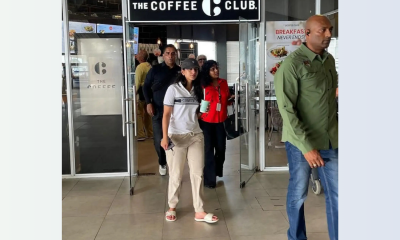
 News1 week ago
News1 week agoAmbani family members holiday in Maldives again
-
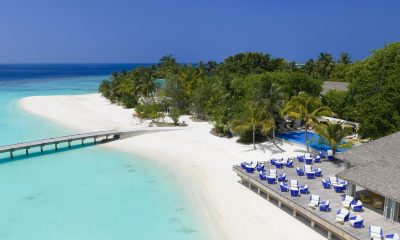
 Featured1 week ago
Featured1 week agoPulse Hotels & Resorts unveils eco-chic Eri Maldives in North Malé Atoll
-
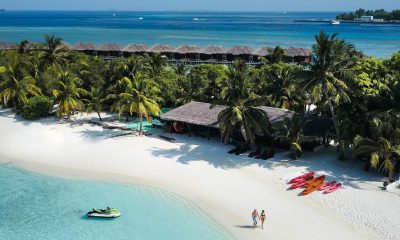
 Featured1 week ago
Featured1 week agoEndless Summer awaits at Sheraton Maldives Full Moon Resort & Spa
-
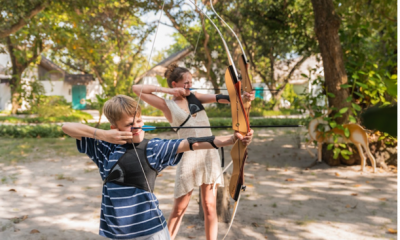
 Featured1 week ago
Featured1 week agoFrom Lunar New Year to Easter: Sirru Fen Fushi reveals seasonal line-up
-
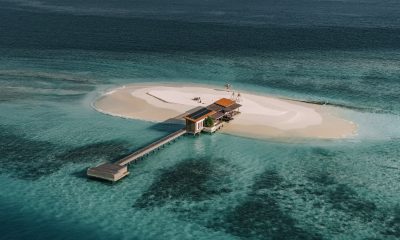
 Cooking1 week ago
Cooking1 week agoAlila Kothaifaru Maldives hosts Campania Wine Dinner with Mastroberardino
-
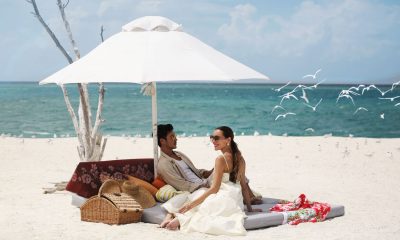
 Featured1 week ago
Featured1 week agoThe Standard, Maldives unveils romantic Valentine’s Day experiences
-

 News1 week ago
News1 week agoMaldives named among world’s top destinations in Tripadvisor’s 2026 awards
-
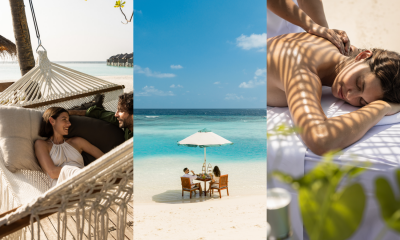
 Featured5 days ago
Featured5 days agoRomantic island experiences await couples at Sun Siyam Vilu Reef









